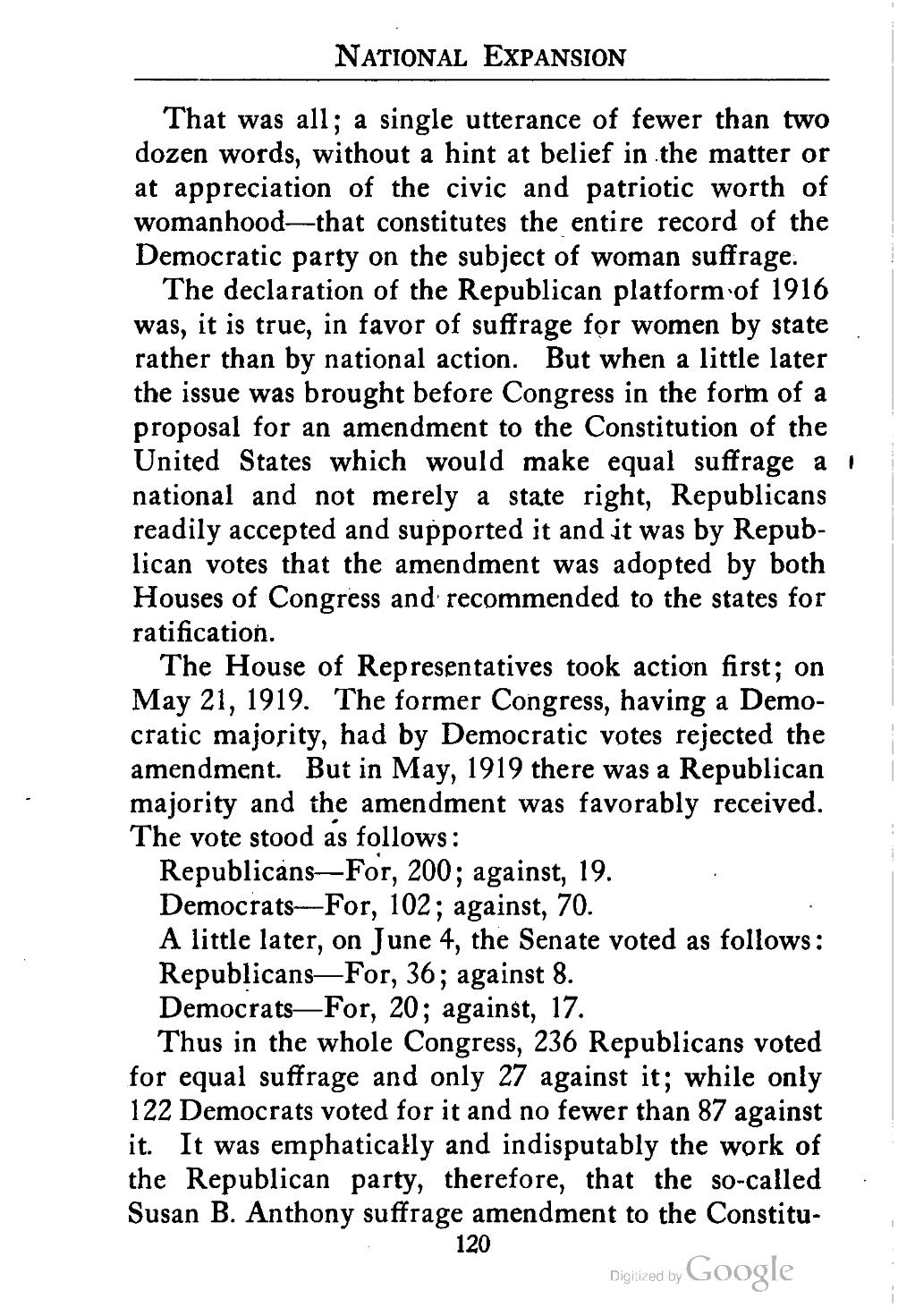National Expansion
That was all; a single utterance of fewer than two dozen words, without a hint at belief in the matter or at appreciation of the civic and patriotic worth of womanhood—that constitutes the entire record of the Democratic party on the subject of woman suffrage.
The declaration of the Republican platform of 1916 was, it is true, in favor of suffrage for women by state rather than by national action. But when a little later the issue was brought before Congress in the form of a proposal for an amendment to the Constitution of the United States which would make equal suffrage a national and not merely a state right, Republicans readily accepted and supported it and it was by Republican votes that the amendment was adopted by both Houses of Congress and recommended to the states for ratification.
The House of Representatives took action first; on May 21, 1919. The former Congress, having a Democratic majority, had by Democratic votes rejected the amendment. But in May, 1919 there was a Republican majority and the amendment was favorably received. The vote stood as follows:
Republicans—For, 200; against, 19.
Democrats—For, 102; against, 70.
A little later, on June 4, the Senate voted as follows:
Republicans—For, 36; against 8.
Democrats—For, 20; against, 17.
Thus in the whole Congress, 236 Republicans voted for equal suffrage and only 27 against it; while only 122 Democrats voted for it and no fewer than 87 against it. It was emphatically and indisputably the work of the Republican party, therefore, that the so-called Susan B. Anthony suffrage amendment to the Constitu-
120
